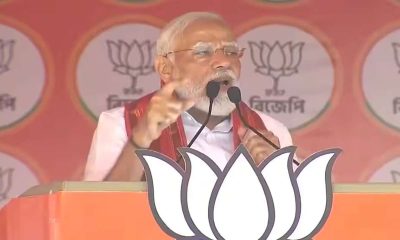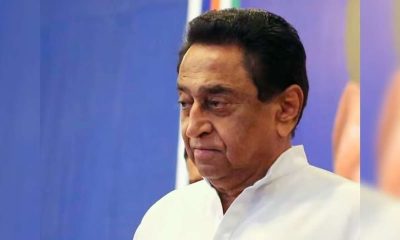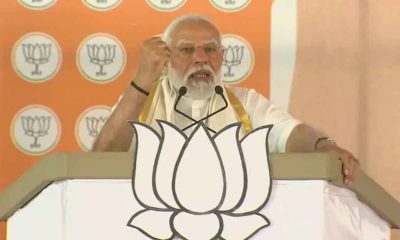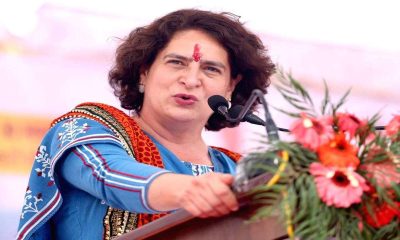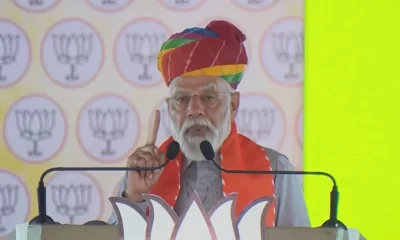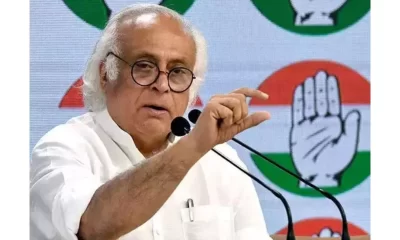Latest Politics News
Karat nixes Yechury’s plan for Left-Congress alliance
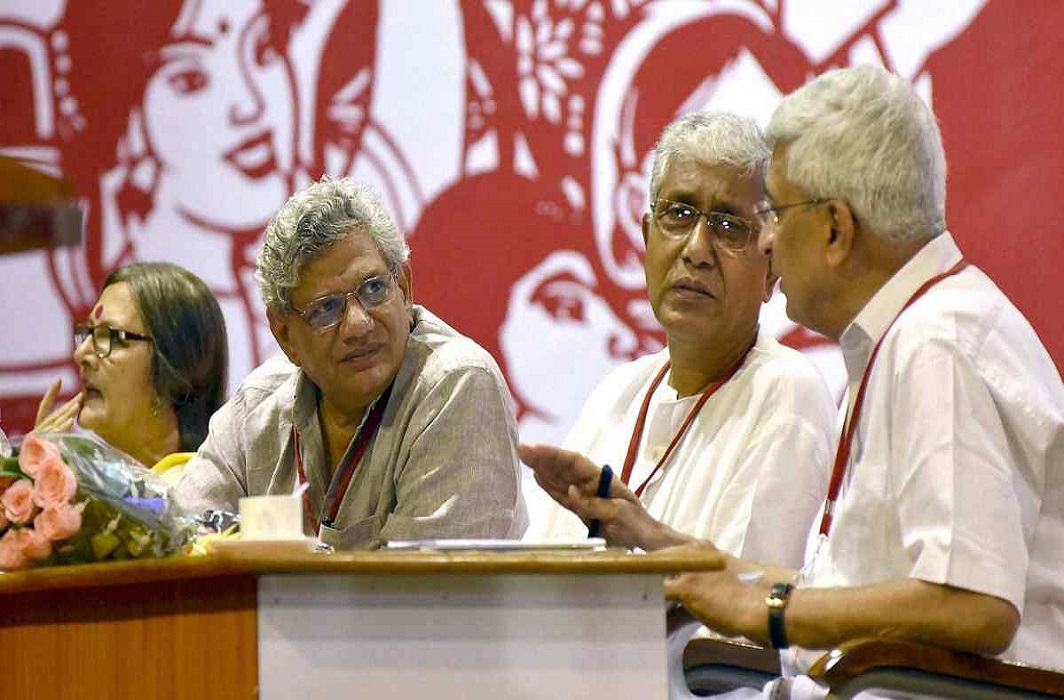
By Puneet Nicholas Yadav
Sitaram Yechury offered to resign as Prakash Karat’s Kerala faction derailed his proposal for pre-poll alliance with Congress in run up to 2019 elections
Months after ensuring that he does not get a third term in the Rajya Sabha, the Kerala faction of the CPM led by veteran Prakash Karat, on Sunday, derailed party general secretary Sitaram Yechury’s politically pragmatic proposal of entering into a pre-poll alliance with the Congress in the run up to the 2019 general election to dent BJP’s chances of retaining power at the Centre.
CPM sources, who were present at Sunday’s central committee meeting held in Kolkata, hinted that Yechury offered to resign from his post after his proposal was comprehensively rejected by his colleagues, arguing that the development would make his position as party general secretary “untenable”.
This is the second major setback for Yechury since July last year when the Prakash Karat-led faction of the party, comprising largely of comrades from the communist party’s Kerala unit and some from Bengal and Tripura, swiftly nixed the possibility of the CPM general secretary being re-nominated to the Rajya Sabha for a third consecutive term. The CPM does not offer any of its members more than two consecutive terms in Rajya Sabha. However, Yechury’s supporters had argued then that given his stature, camaraderie with leaders of other Opposition parties, brilliant oratory and firm grip on socio-political and economic issues of the country, he was the party’s best bet in the Upper House given the prevailing political situation.
If the developments in July had revealed the turmoil within a CPM that is struggling for survival ever since it lost Bengal to Mamata Banerjee’s Trinamool Congress, Sunday’smachinations at the central committee meeting further cemented the speculation of factional feuds between the Yechury and Karat camps.
Within the Left front, Yechury has always represented a moderate and politically pragmatic voice. He is known as a leader who is willing to engage with other ‘secular’ parties on political and economic issues which can help the CPM retain, if not expand, its dwindling support among the masses even if doing so dilutes the party’s more radical agenda. In stark contrast, the Karat-camp, which has Kerala chief minister Pinarayi Vijayan as one of its strongest backers, is known for its hardline outlook, one that is willing to sacrifice the party’s political standing in the hope of retaining its ideological identity.
It is this divide that political observers believe has led to the downfall of the Left in the past two decades. The hardliners had prevailed over the party to rob the late Jyoti Basu – then chief minister of Bengal – of the opportunity of becoming the country first Prime Minister from a Left party back in 1997 only because they didn’t favour the idea of the stalwart assuming the high office with the support of the Congress and other secular parties. That decision paved the way for Atal Bihari Vajpayee-led BJP and the NDA coalition to come to power at the Centre. Later, in 2004, while the Left parties did give outside support to the Congress-led UPA government, Karat as general secretary was instrumental in forcing then Prime Minister Dr Manmohan Singh to face a trust vote because the CPM didn’t agree with the Centre’s decision of signing the nuclear deal with the US. While the UPA survived the trust vote and managed to retain power – with a greater strength – in the 2009 general elections, the Left was decimated in the years that followed; wiped out of Bengal as well as Kerala. The rout continued in 2014 as the BJP, led by Narendra Modi, stormed to power at the Centre while the Left continued to fight for political survival in its erstwhile bastions.
Now, as the communists struggle to come out of their political wilderness, Yechury has been hoping that a tactical alliance with the Congress could help the party regain lost ground at least in Bengal – a state currently under the firm control of Mamata Banerjee’s Trinamool Congress but where the BJP is making significant in-roads; eating into the crammed Opposition space occupied by the Left and the Congress.
However, the argument of the Prakash Karat-Pinarayi Vijayan Kerala axis against a potential Left-Congress alliance is one that Yechury and his supporters have not been able to find a reply to. Karat and Vijayan draw their political strength from Kerala, where the Congress is the key rival of the ruling CPM. Karat believes that his party would lose credibility among comrades and supporters if it allies with its principle rival in Kerala at the Centre or in Bengal. Karat’s argument also holds true in Tripura where the incumbent CPM government under Manik Sarkar has hitherto had the Congress as its arch rival. The Tripura scenario may, however, change later this year when the state goes to polls as the BJP is investing heavily to make in-roads in the north-eastern state and is already in talks with smaller regional outfits for a rainbow coalition.
For the Congress, Sunday’s developments are at best a mini-setback. The CPM’s decision to not ally with the Congress won’t affect the Grand Old Party in Kerala where it already has a significant vote-base and strong grassroots leadership. In Bengal the Congress is a marginal player and still has the option of reviving its alliance with the Trinamool to keep itself relevant.
Karat’s decision may help the CPM retain Kerala for now but in the longer run, it could bring the party more harm just as his decision of pulling out of the UPA in 2008 – much against Yechury’s advice – did.
2024 Lok Sabha Elections
Mallikarjun Kharge vows to continue politics till his last breath to defeat BJP
The 81-year-old Congress leader was speaking at a election rally in Afzalpur and said that if the people did not vote for the Congress candidate, he would think that he did not have any place in Kalaburagi anymore.

Congress President M Mallikarjun Kharge on Wednesday appealed to the people of Kalaburagi to at least attend his funeral if they thought he worked for them even though they do not wish to vote for Congress in the ongoing Lok Sabha elections.
The 81-year-old Congress leader was speaking at a election rally in Afzalpur and said that if the people did not vote for the Congress candidate, he would think that he did not have any place in Kalaburagi anymore. The Congress President sought an emotional chord with the people of his home district of Kalaburagi, Karnataka
The grand old party has fielded Kharge’s son-in-law Radhakrishna Doddamani from Kalaburagi, against BJP’s sitting MP Umesh Jadhav. Kharge had won the Lok Sabha elections from Kalaburagi in 2009 and 2014, but lost in 2019. He appealed to the voters to vote for Congress but at least come to his funeral if they thought that he had done some work in Kalaburagi. Kharge added that he would continue in politics till his last breath to defeat the BJP and RSS ideology.
The Congress leader said he is born for politics and whether or not he contests the election, he will continue to strive till his last breath to save the Constitution and democracy of the country. He asserted that he will not retire from politics. Kharge said that retirement happens from a position but one should not retire from his/her principles. He said he is born to defeat the ideology of the BJP and RSS and not to surrender before them.
He advised Karnataka Chief Minister Siddaramaiah, who shared the stage with him, to follow his principles. He said he had told Siddaramaiah many times that he may retire as CM or MLA, but he cannot retire from politics till he defeats the ideology of the BJP and RSS.
2024 Lok Sabha Elections
Nitin Gadkari says he’s better now after collapsing at election rally in Maharashtra’s Yavatmal
A disturbing video of the incident – which was unfortunately streamed live on X (formerly Twitter), including by his own account – showed Nitin Gadkari being carried away by those on stage, many of whom rushed to form a shield around the BJP leader to give him, and those treating him, some privacy.
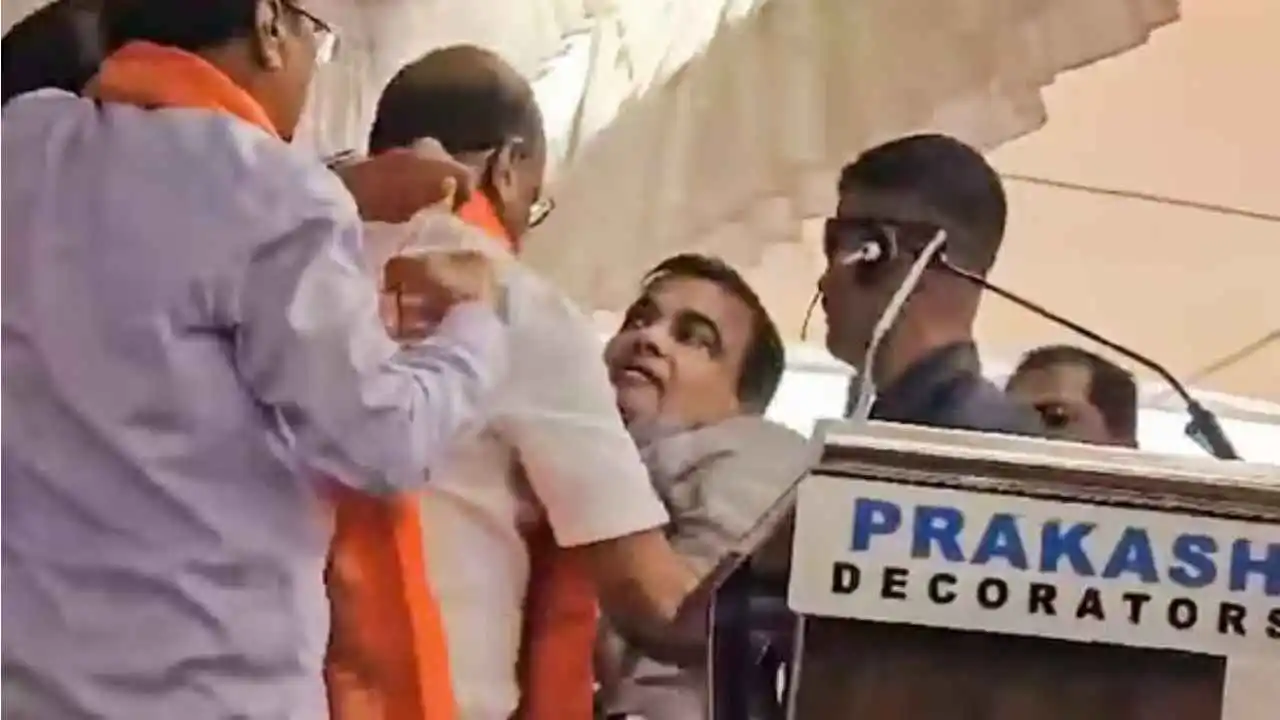
Union Road Transport and Highways Minister Nitin Gadkari collapsed while speaking at an election rally in Maharashtra’s Yavatmal on Wednesday afternoon. Fortunately, the senior Bharatiya Janata Party leader received prompt treatment and was able, after a brief pause, to get back up on stage and continue his speech.
A disturbing video of the incident – which was unfortunately streamed live on X (formerly Twitter), including by his own account – showed Nitin Gadkari being carried away by those on stage, many of whom rushed to form a shield around the BJP leader to give him, and those treating him, some privacy.
Nitin Gadkari took to X and informed that he felt uncomfortable due to the heat during the rally in Pusad, Maharashtra. But now he is completely healthy and is leaving for Varud to attend the next meeting. He thanked his supporters and well wishers for their love and good wishes.
Gadkari, who fought the elections in the first phase of voting as BJP’s candidate from Nagpur Lok Sabha seat, was campaigning for Eknath Shinde-led Shiv Sena leader Rajashree Patil in Yavatmal’s Pusad. Addressing the rally, the union minister said, he was confident that the people of Yavatmal district, which has a constant tendency towards development, will give victory to the BJP-Maha alliance, which believes in all-round development.
Gadkari posted on X that as the nation moves towards a developed India, under the leadership of Prime Minister Narendra Modi, significant work has been done in the last 10 years in the areas of roads and highways as well as health, education and other sectors across the country. He said many schemes of the central government were successfully extended to the rural areas. Due to this, along with the city, the people of the rural areas are also able to benefit from many important facilities.
The Yavatmal constituency along with Akola, Buldhana, Amravati, Hingoli, Wardha, Parbhani and Nanded in Maharashtra are scheduled to vote in the second phase of the Lok Sabha election on April 26.
2024 Lok Sabha Elections
PM Narendra Modi slams Congress over Sam Pitroda’s inheritance tax remarks, accuses Congress of intending to impose higher taxes
PM Modi was speaking at a public meeting in Chhattisgarh’s Surguja, where he alleged that the Congress wants to fill its own coffers by imposing ever higher taxes and not allowing people to pass on their hard-earned wealth to their children.
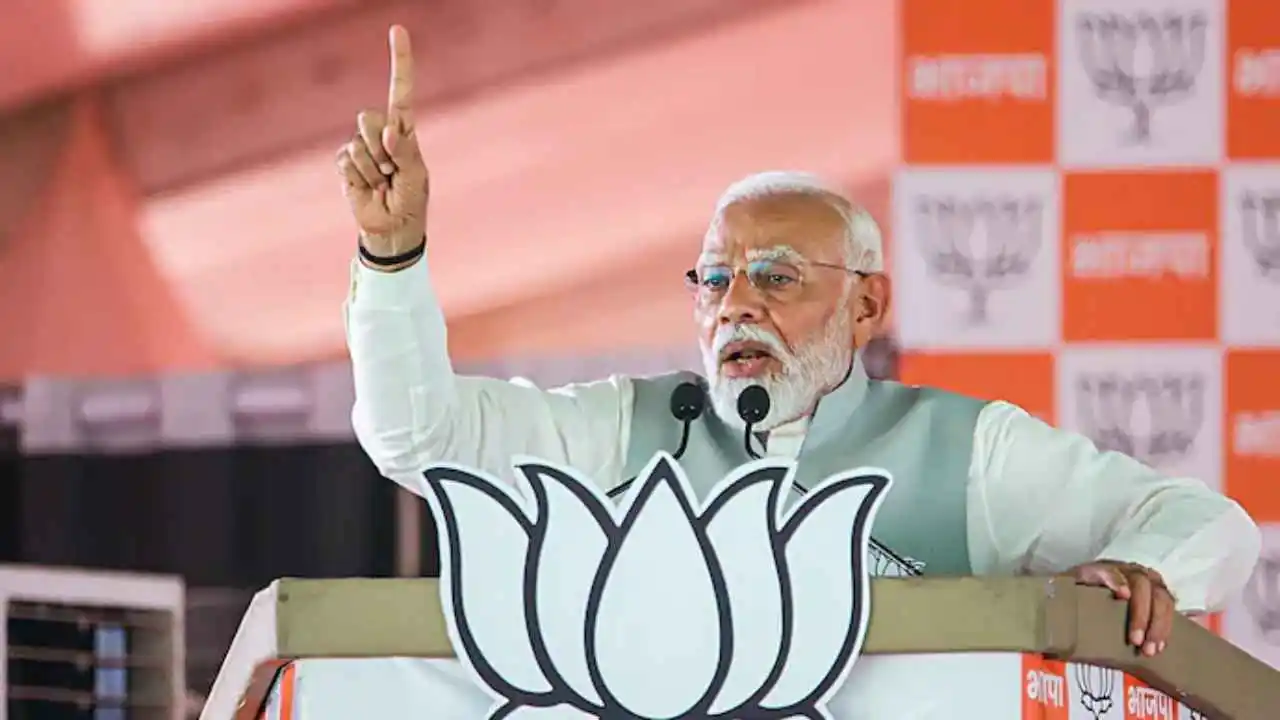
Prime Minister Narendra Modi on Wednesday launched a scathing attack on Congress after Sam Pitroda advocated for a US-style inheritance tax amid the ongoing debate over wealth redistribution. The comments have further fuelled an already-raging controversy over Rahul Gandhi’s promise to conduct a wealth survey if the Congress won the Lok Sabha election.
PM Modi was speaking at a public meeting in Chhattisgarh’s Surguja, where he alleged that the Congress wants to fill its own coffers by imposing ever higher taxes and not allowing people to pass on their hard-earned wealth to their children.
The Prime minister said the advisor (Sam Pitroda) of the prince and the royal family had said some time ago that more taxes should be imposed on the middle class. He said the Congress party says that it will impose an inheritance tax, and it will also impose tax on the inheritance received from parents. PM Modi added the children will not get the wealth that their parents accumulate through their hard work, rather the Congress party will snatch it away from them.
PM Modi said Pitroda’s remarks have exposed the dangerous intentions of the Congress. He took a veiled jibe at the Congress and said the party has only one mantra – to loot people zindagi ke sath bhi, zindagi ke baad bhi (in life and even after death).
The prime minister did not take any names and targeted the Gandhi family and said, those people who considered the entire Congress party as their ancestral property and handed it over to their children, now do not want Indians to pass on their property to their younger generations.
Indian Overseas Congress chairman Sam Pitroda while talking to the media backed his party’s stand on redistribution of wealth and called for a policy for the same while citing the concept of inheritance tax prevailing in some American states.
-
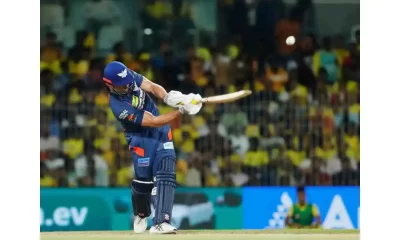
 Cricket news18 hours ago
Cricket news18 hours agoIPL 2024: Marcus Stoinis hits first IPL century as Lucknow Super Giants beat Chennai Super Kings by 6 wickets
-
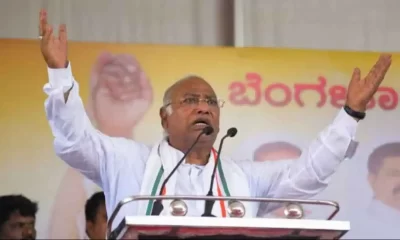
 2024 Lok Sabha Elections10 hours ago
2024 Lok Sabha Elections10 hours agoMallikarjun Kharge vows to continue politics till his last breath to defeat BJP
-
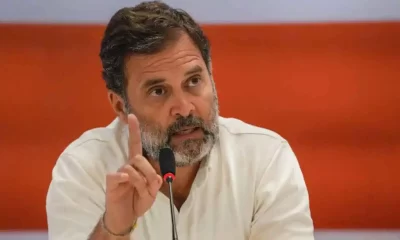
 2024 Lok Sabha Elections16 hours ago
2024 Lok Sabha Elections16 hours agoRahul Gandhi clarifies on wealth survey remark, says aim is to identify injustice
-
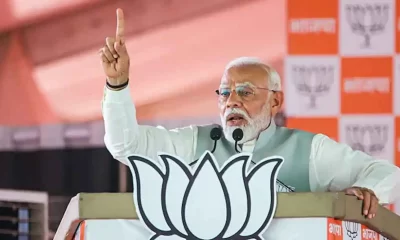
 2024 Lok Sabha Elections13 hours ago
2024 Lok Sabha Elections13 hours agoPM Narendra Modi slams Congress over Sam Pitroda’s inheritance tax remarks, accuses Congress of intending to impose higher taxes
-
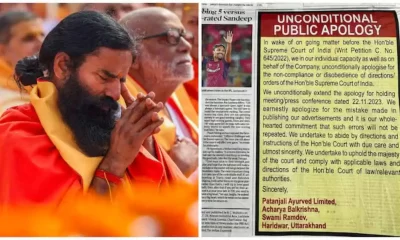
 India News15 hours ago
India News15 hours agoRamdev, Balkrishna publish bigger apology in newspapers after Supreme Court’s rap
-
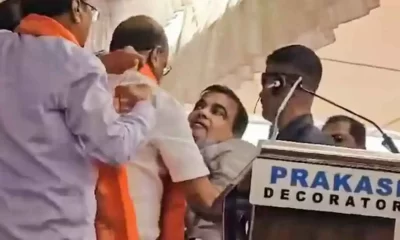
 2024 Lok Sabha Elections10 hours ago
2024 Lok Sabha Elections10 hours agoNitin Gadkari says he’s better now after collapsing at election rally in Maharashtra’s Yavatmal
-
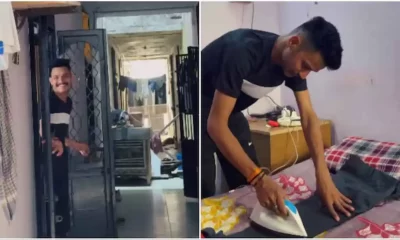
 Trending14 hours ago
Trending14 hours agoA waiter’s life: Social media users go emotional on watching viral video
-

 Entertainment11 hours ago
Entertainment11 hours agoMadhuri Dixit, Karisma Kapoor recreate Dil To Pagal Hai dance battle on Dance Deewane

